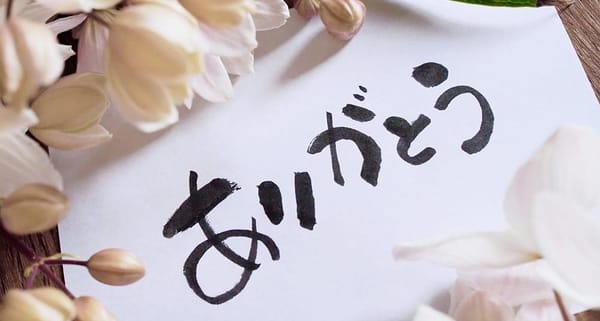Politeness or Emotional Evasion? Rethinking Kindness in Japan
We say “Let’s hang out!” but never follow through. Is that kindness—or fear of confrontation in disguise?

After living and working in Japan for several years, I’ve come to notice a recurring pattern in the way people communicate — something subtle, but deeply impactful.
In many situations, what’s presented as kindness can sometimes feel more like avoidance. And on the flip side, directness is often mistaken for aggression or selfishness.
People nod and smile, saying things like “Let’s get drinks sometime!” even when there’s no real intention to follow through. They respond with “I’ll think about it” when their mind is already made up. Declining something clearly — or asking for clarity — can feel like social overstepping.
It’s graceful. It’s smooth. But it also raises a question:
Is this really kindness — or just a way to sidestep discomfort?
The Polite Disappearances We’ve Learned to Accept
Here are a few common moments I’ve experienced or seen in daily life — small, seemingly innocent interactions that carry bigger emotional weight than they appear to:
- Saying “Let’s meet again soon!” after an awkward dinner or first date, with no intention of reconnecting.→ The other person is left waiting, wondering, and second-guessing themselves — while the sender has quietly moved on.
- Declining a favor with “I’ll check my schedule” or “That sounds interesting,” then going silent.→ Instead of giving closure, the message leaves the recipient in a limbo of uncertainty.
- Smiling and saying “It’s fine” at work when something clearly isn’t — then venting privately later.→ The issue isn’t addressed, but the resentment lingers.
- Giving feedback like “Maybe just a little more energy next time?” without clear direction.→ The listener is left to decode the message alone, often feeling unsure or inadequate.
These are all framed as “polite,” but at their core, they’re forms of emotional evasion. And while they may smooth over moments in the short term, they often create more confusion, stress, and hurt in the long run.
False Hope Isn’t a Gift
Often, this kind of indirectness is seen as sparing someone’s feelings. But in reality, it can deny them something more important: clarity.
When we aren’t honest with someone about our intentions or feelings, we give them an incomplete picture. They’re left to fill in the blanks themselves — sometimes with painful guesses. Worse, this dynamic can send an unspoken message:
“You’re not ready to hear the truth.”
Or even:
“Your emotional reaction isn’t worth managing.”
When someone finds out later — through silence, delay, or gossip — that you weren’t interested, didn’t support them, or weren’t sincere, the hurt cuts deeper. Not just because of what was withheld, but because it felt like a betrayal of trust.
What If Directness Was the Real Kindness?
It’s often assumed that being direct is rude or insensitive — but is it really? What if we reimagined directness as a form of respect? Not harshness, but clarity with care. Like:
“Thanks for thinking of me, but I won’t be able to participate this time.”
“I appreciate the offer, but this doesn’t feel like the right fit.”
“I think we’re looking for different things — and that’s okay.”
These statements may be uncomfortable in the moment. But they’re rooted in something honest. And that honesty communicates:
“I trust you enough to be real with you.”
“You deserve to know where I stand.”
“I’m willing to feel awkward if it helps us move forward with clarity.”
Why This Matters Beyond Personal Relationships
This isn’t just about dating, invitations, or casual communication. In professional settings, indirectness can have a bigger cost:
- Teams don’t improve if feedback is always vague.
- Decisions drag on if no one speaks up.
- Trust erodes when people feel like they’re constantly reading between the lines.
What may feel like social grace in the moment can become inefficiency, misalignment, or quiet resentment over time.
Of course, there’s beauty in the thoughtfulness behind Japanese communication. There’s value in not rushing to conflict, in holding space for harmony. But maybe — just maybe — harmony doesn’t always mean avoiding tension. Sometimes, true harmony is built through honesty. So instead of asking “Am I being polite?”, perhaps the better question is:
“Am I being clear?”
“Am I sparing someone’s feelings — or just sparing myself the discomfort?”
“Am I softening the truth — or hiding it entirely?”
There’s a Japanese saying: “面と向かって言わないのが優しさだ。”
(Men to mukatte iwanai no ga yasashisa da.)
“Not saying it to someone’s face is a form of kindness.”
But from an outsider’s perspective, I can’t help wondering — what if real kindness is saying it to their face? Not out of cruelty, but out of care. Because while silence may protect the surface, honesty — when done with empathy — honors the relationship itself.
Let’s stop mistaking politeness for compassion. And start practicing clarity as a form of respect.



